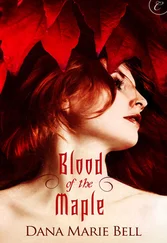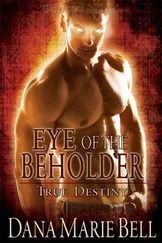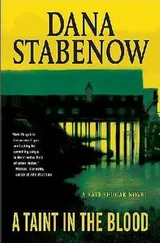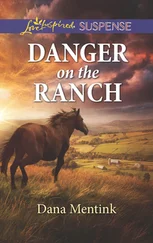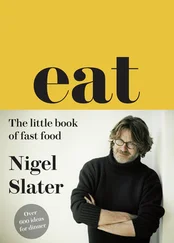Dana Spiotta - Eat the Document
Здесь есть возможность читать онлайн «Dana Spiotta - Eat the Document» весь текст электронной книги совершенно бесплатно (целиком полную версию без сокращений). В некоторых случаях можно слушать аудио, скачать через торрент в формате fb2 и присутствует краткое содержание. Год выпуска: 2006, Издательство: Scribner, Жанр: Современная проза, на английском языке. Описание произведения, (предисловие) а так же отзывы посетителей доступны на портале библиотеки ЛибКат.
- Название:Eat the Document
- Автор:
- Издательство:Scribner
- Жанр:
- Год:2006
- ISBN:нет данных
- Рейтинг книги:3 / 5. Голосов: 1
-
Избранное:Добавить в избранное
- Отзывы:
-
Ваша оценка:
- 60
- 1
- 2
- 3
- 4
- 5
Eat the Document: краткое содержание, описание и аннотация
Предлагаем к чтению аннотацию, описание, краткое содержание или предисловие (зависит от того, что написал сам автор книги «Eat the Document»). Если вы не нашли необходимую информацию о книге — напишите в комментариях, мы постараемся отыскать её.
shifts between the underground movement of the 1970s and the echoes and consequences of that movement in the 1990s. A National Book Award finalist,
is a riveting portrait of two eras and one of the most provocative and compelling novels of recent years.
Eat the Document — читать онлайн бесплатно полную книгу (весь текст) целиком
Ниже представлен текст книги, разбитый по страницам. Система сохранения места последней прочитанной страницы, позволяет с удобством читать онлайн бесплатно книгу «Eat the Document», без необходимости каждый раз заново искать на чём Вы остановились. Поставьте закладку, и сможете в любой момент перейти на страницу, на которой закончили чтение.
Интервал:
Закладка:
After our introduction, our brief paragraphs of biographical detail, we segued effortlessly into our obsessions. We have spent the last few weeks together in an orgy of listening. I was relieved to discover that Gage was no don’t-touch-the-record collector. He was passionately into listening and playing things for you to listen to. We sat in his room — which has a black light, I kid you not, and the appropriate psychedelic posters to go with it — and we had listening jags, hours of intensity. Jumping promiscuously from “You have that?” to “Wait until you hear this!” But very shortly the novelty began to wear off. We quickly grew less patient with each other’s interests. He was deeply into this ’70s thing, particularly a lot of deep listenings of Roxy Music’s mid-to late ’70s albums. I was cool with that, but I had been through it all two summers ago. Naturally he tried to fly the rather perverse opinion that Roxy’s late ’70s discoish period was really the best stuff, rather than the avant-pop and math-fizz of their earlier experimental stuff. Something along the lines of the “glorious dance music of 1979” (a hyperbolic assertion, which is just so typical of Gage and his ilk, and so utterly false).
“Dude, listen, check out the percussion on this track. Totally conjured on a Jupiter 8. That is all of ’80s dance music in a nutshell,” Gage said to me.
“Yeah, dude . That’s quite a legacy to claim.”
“That is it. Nothing like those late ’70s thick-as-a-brick analog synths, synthesizers that had no shame!”
It was the trend — unspoken but somehow felt everywhere at once — among some music freaks to be into synthesizers, but only the spaceship-landing, proudly precise and artificial vibrato of early-to middle-period predigital synths. Roland Jupiter 8s. Minimoogs. Yeah, sure.
“I don’t know, the production is really flat. Like airless.”
That was my bullshit response, to call the production “airless,” because it just means this music is not flying my flag right now, and I’ve got several choice albums on deck, all without synthesizers save perhaps a theremin and with production that could supply enough oxygen to feed an army of asthmatic smokers for life. And of course Gage was being totally fascistic about what we had to hear next. But the thing is the guy was in the thrall, so deep into his obsession, his Roxy freak, that he meant it. He was drowning in the circular mess of relativity, the mindfuck of repeated listening, the loss of perspective that comes with looking at something too closely. I know. I’ve been there. Don’t even get me started on the Beach Boys. As I am writing this, it’s there. As I was sitting at Gage’s trying to listen to his records, I was fondling an original-issue 45 of “God Only Knows.” I was humming, no, vibrating, Pet Sounds’ s songs, in order. And I couldn’t wait to satisfy my jones for it. So I knew exactly where Gage was at, but Gage didn’t have much perspective for a guy his age, did he? He didn’t have a clue how deep in he was, how tragically without perspective. I know the day will come when I won’t feel this way about the Beach Boys. I know, at least intellectually, that day will come. Then perhaps I will be all gooey for the genius of early Little Feat or late Allman Brothers or something. And when I realize this I feel a little sad. I could be reading a great book, couldn’t I? Or going for a bike ride or meeting a girl at the pool or hacking into someone’s bank account. (Or even bathing more often, for God’s sake.)
As I sat at Gage’s feet — black light hurting my eyes, listening against my will to the perverse whispers of Bryan Ferry — I wondered if my life was going to be one immersion after another, a great march of shallow, unpopular popular culture infatuations that don’t really last and don’t really mean anything. Sometimes I even think maybe my deepest obsessions are just random manifestations of my loneliness or isolation. Maybe I infuse ordinary experience with a kind of sacred aura to mitigate the spiritual vapidity of my life. But, then again, maybe not.
As soon as I got home from Gage’s, I threw on the record I longed to hear. Listening, I reconsidered my earlier despair — no, it is beautiful to be enraptured. To be enthralled by something, anything. And it isn’t random. It speaks to you for a reason. If you wanted to, you could look at it that way, and you might find you aren’t wasting your life. You are discovering things about yourself and the world, even if it is just what it is you find beautiful, right now, this second.
I am a person, I think, who feels comfortable in my isolation. Even someone like Gage (who is someone with whom admittedly I have a lot in common, a person with whom you might think I would enjoy keeping company) doesn’t alleviate my feelings of loneliness. The effort it required just to be around him and tolerate him made me even more lonely. I am at home only in my own personal loneliness. The thing of it is I don’t necessarily feel connected to Brian Wilson or any of the Beach Boys. But I do, I guess, feel connected to all the other people, alone in a room somewhere, who listen to Pet Sounds on their headphones and who feel the way I feel. I just don’t really want to talk to them or hang out with them. But maybe it is enough to know they exist. We identify ourselves by what moves us. I know that isn’t entirely true. I know that’s only part of it. But here’s what else: Lately I find I wonder about my mother’s loneliness. Is it like mine? Does she feel comfortable there? And if I am comfortable with it, sort of, why do I still call it loneliness? Because — and I think somehow she would understand this — you can have and recognize a sadness in your alienation and in other people’s alienation and still not long to be around anyone. I think that if you wonder about other people’s loneliness, or contemplate it at all, you’ve got a real leg up on being comfortable in your own.
Anyway, the really relevant part, the whole point of why I am writing about this, came yesterday, maybe a month after Gage and I started spending afternoons together. Gage was at my house, and it started creeping toward dinnertime. Dinnertime normally consists of my mother and me watching TV, or reading magazines, or watching TV while reading magazines. Our living area is of a contemporary “open-plan” style so common in the 1970s split-level vernacular. In other words, our dining room, living room and TV room all seamlessly segue into each other. A house designed — with sliding glass doors, cathedral ceilings, open kitchen counters instead of a wall, all of it transparent and divisonless — for bright Californians, not cloudy gray Northwesterners. Other families, like ours, are more suited to low-ceilinged, small, rabbit-warren-type rooms. We need corners and shadows. We need distinct spaces. The simultaneity of these open, integrated living spaces seems obscene to us. We lurk about, uncomfortable, shamed by our own house.
However, the open plan did afford one advantage. Not only are you able to constantly monitor each other but you can constantly monitor the TV, which is in the most central room. So if we were sitting at the dining room table, all we had to do was look up and we would see the TV. We don’t have to actually sit in the TV room: no such commitment required. We just have to leave it on, and it will be visible from any room. There are rules, don’t misunderstand, there are standards. We watch the news. Occasionally a movie. We do not watch a situation comedy, or a television drama. Not while we are eating. I mean, I don’t care, I just like having it on. I usually have one of my crime novels, generally a serial killer book, on hand as well. I read true crime stories, or literary crime stories. But I prefer the real dark ones, thriller-killer stuff, to the corny kind of running sleuth series, but hey, I’ll read any kind really. I read them constantly. Seriously, I read like a book a day. I can listen to music, read, and be on the Internet all at the same time. And watch TV. I’m not bragging, I mean I’m aware that this is no sterling accomplishment. It’s pretty standard, isn’t it? If I went to the gym, which I don’t, I would see people reading, and listening to music while also watching the video monitors of TV shows they can’t hear. Their eyes might even flick from their page to more than one monitor while getting their heart rates up into target zones and hydrating themselves from water bottles. All at the same time. So I don’t think it makes me a genius or a mutant fuck to do all of these things at once. My point is simply that I am accustomed to a lot of controlled simultaneous stimulation.
Читать дальшеИнтервал:
Закладка:
Похожие книги на «Eat the Document»
Представляем Вашему вниманию похожие книги на «Eat the Document» списком для выбора. Мы отобрали схожую по названию и смыслу литературу в надежде предоставить читателям больше вариантов отыскать новые, интересные, ещё непрочитанные произведения.
Обсуждение, отзывы о книге «Eat the Document» и просто собственные мнения читателей. Оставьте ваши комментарии, напишите, что Вы думаете о произведении, его смысле или главных героях. Укажите что конкретно понравилось, а что нет, и почему Вы так считаете.





